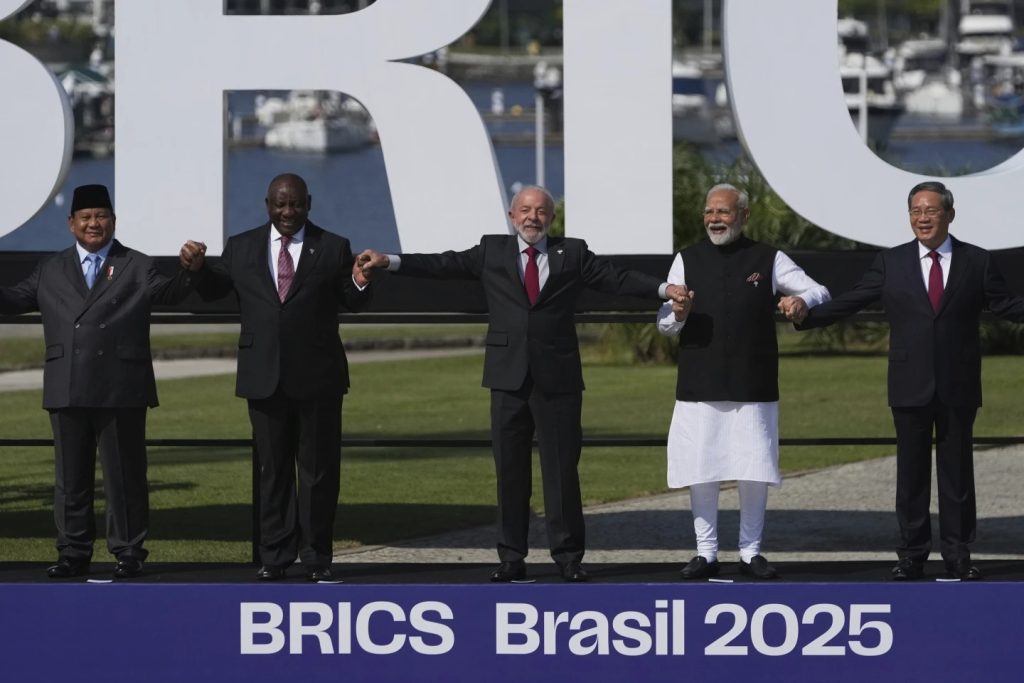Until early this year, India seemed poised for global prominence. As the world’s fourth-largest economy, it inspired ambitions of superpower status under Prime Minister Narendra Modi’s leadership. A burgeoning market and Modi’s international acclaim underscored India’s rising stature.
Yet, cracks in its geopolitical armour have exposed vulnerabilities, particularly in its regional and global relations, forcing its foreign policy to a critical juncture.
India’s relations with its neighbours have deteriorated. Pakistan’s persistent claims over Kashmir, backed by alleged cross-border terrorism, have fuelled hostility.
Bangladesh, once aligned with India under Sheikh Hasina, turned adversarial after her ouster, forging ties with Pakistan and China.
Despite these challenges, India projected confidence in its regional dominance.
Globally, India pursued an independent foreign policy, defying U.S. sanctions by purchasing Russian oil and operating Iran’s Chabahar port. It refrained from condemning Russia’s invasion of Ukraine, despite its strategic partnership with the U.S., and maintained robust trade with China despite border disputes and its role in the anti-China QUAD alliance.
Vanishing Comfort Zone
But India’s confidence was shaken in 2025 by US President Donald Trump’s “Make America Great Again” agenda. His administration deported Indian illegal immigrants chained in the foot and piled into a military transport plane, a dehumanizing spectacle which left Indians stunned.
Trump criticized India’s protectionist trade policies, threatening punitive tariffs. A trade pact was stalled by demanding access for US dairy and farm products, which could devastate Indian farmers.
Pahalgam Terror Strike and Escalation
The April 22 terrorist attack in Pahalgam, Kashmir, which killed 26 Hindu men, allegedly by Pakistan-based groups, escalated tensions. India suspended the Indus Water-Sharing Treaty, cutting off Pakistan’s irrigation water, and launched airstrikes on alleged terror bases. A four-day air and missile conflict ensued, halted only by Trump’s intervention.
Pakistan hailed Trump’s mediation, nominating him for the Nobel Peace Prize, while India bristled at Trump’s equating it with Pakistan, a blow to its self-image as South Asia’s preeminent power. Pakistan’s claim of downing six Indian jets, met with India’s silence, further eroding perceptions of Indian superiority while elevating Pakistan’s profile in Western eyes.
Trump’s invitations to Pakistan’s military leaders and discussions on rare earth mining and cryptocurrency signalled a revival of US-Pakistan ties, aimed at countering India.
Push to Demonize Pakistan
To salvage its downed reputation in the major capitals of the world, India intensified efforts to brand Pakistan as a terrorism hub but met limited success due to insufficient evidence.
Perceived threats to Pakistan’s nuclear facilities in its air raids drew Western criticism. Seven all-party delegations to 33 countries failed to sway global opinion.
Meanwhile, India’s equivocal stance on the Iran-Israel conflict and Israel’s actions in Gaza alienated the Global South, casting India as a US-Israel proxy and weakening its international standing as a leader of the Global South.
At the Shanghai Cooperation Organization’s Defence Ministers’ meeting in Qingdao, China, on June 25-26, India refused to endorse a statement omitting the Pahalgam attack and Pakistan’s alleged role, while the document indirectly accused India of fuelling unrest in Balochistan.
On the Iran-Israel conflict, India avoided condemning Israel’s attack on Iran’s nuclear facilities, urging de-escalation instead.

Quad and BRICS to the Rescue
In contrast, India found success at the QUAD Foreign Ministers’ meeting in Washington on July 1. The pro-Western alliance condemned the Pahalgam attack, called for justice, and reaffirmed its commitment to countering cross-border terrorism, aligning with India’s narrative. And yet Pakistan’s role was not mentioned.
At the BRICS summit in Rio de Janeiro on July 6, India secured a strong condemnation of the Pahalgam attack and cross-border terrorism, likely aided by Chinese President Xi Jinping’s absence. The statement emphasized zero tolerance for terrorism and accountability under international law, bolstering India’s position.
A China-Led Regional Alternative?
On June 20, Foreign Secretaries of China, Pakistan, and Bangladesh met in Kunming to deepen trilateral cooperation in trade, agriculture, climate change, and more, forming a working group to oversee initiatives.
The joint statement emphasized “open regionalism” and welcomed India’s participation, denying any anti-India intent. However, many in India view this as a China-led alternative to SAARC, which India rendered dysfunctional by its opposition to Pakistan. Backed by China’s development expertise, this trilateral could address regional needs, side-lining India’s influence.
Foreign Policy at the Crossroads
In sum, unforeseen geopolitical shifts have tested India’s much-vaunted independent foreign policy. As regional rivalries intensify and global alignments shift, India’s policymakers must urgently reassess their strategy to navigate this complex new reality.


